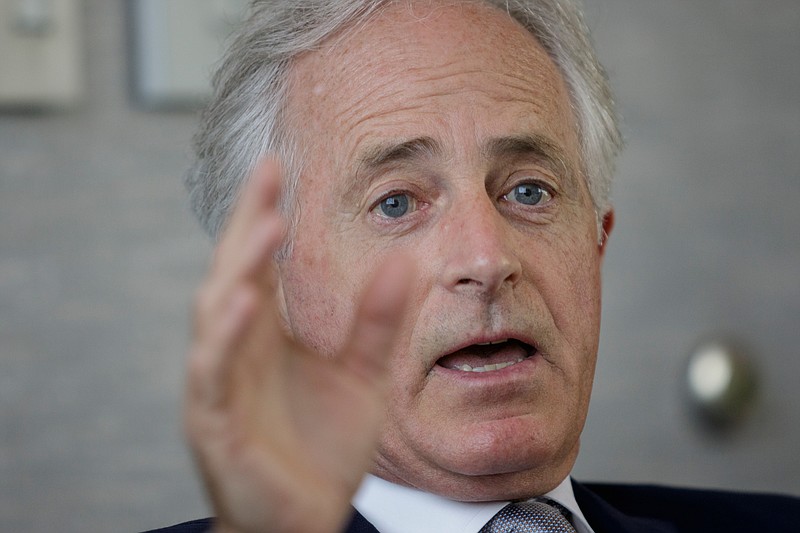WASHINGTON – Calling President Donald Trump's actions on tariffs and trade "damaging," U.S. Sen. Bob Corker on Thursday convened a Foreign Relations Committee hearing to explore the implications of tariffs for U.S. foreign policy and the international economy.
The hearing comes a day after the Senate voted 88-11 to support efforts by Corker, Sen. Pat Toomey, R-Pa., and Sen. Jeff Flake, R-Ariz., to ensure Congress can exercise oversight in the implementation of national security-designated tariffs on steel and aluminum imports from Canada, Mexico, and the European Union, according to a news release from Corker's office.
"From the imposition of tariffs by abusing Section 232 authorities to threats to withdraw from long-standing trade agreements such as NAFTA, these actions are hurting our business and farm communities all around the country," Corker said.
"They are damaging the international relationships we have spent decades building, casting doubt on the United States and our role as a global leader and a reliable partner. To my knowledge, not a single person is able to articulate where this is headed, nor what the plans are, nor what the strategy is. It seems to be a 'wake up, ready, fire, aim' strategy."
He said the Trump administration needs to "explain to us where this is going. The disruptions and costs of these tariffs are clear."
He added that "we will continue pushing for a binding vote on this legislation in the near future."
Josh Bolten, who now represents the Business Roundtable, said the steel and aluminum tariffs "are hurting the very workers and families the administration aims to protect while doing little to address a real problem in the global economy, which is overcapacity in steel.
"In addition to diminishing the economic benefits of the administration's successful tax and regulatory policies, these tariffs – and resulting trade retaliation from other countries – will continue to impose tremendous costs on U.S. businesses and workers, erode U.S. global competitiveness and economic growth, and undermine key U.S. economic and security relationships. This is the wrong approach."
